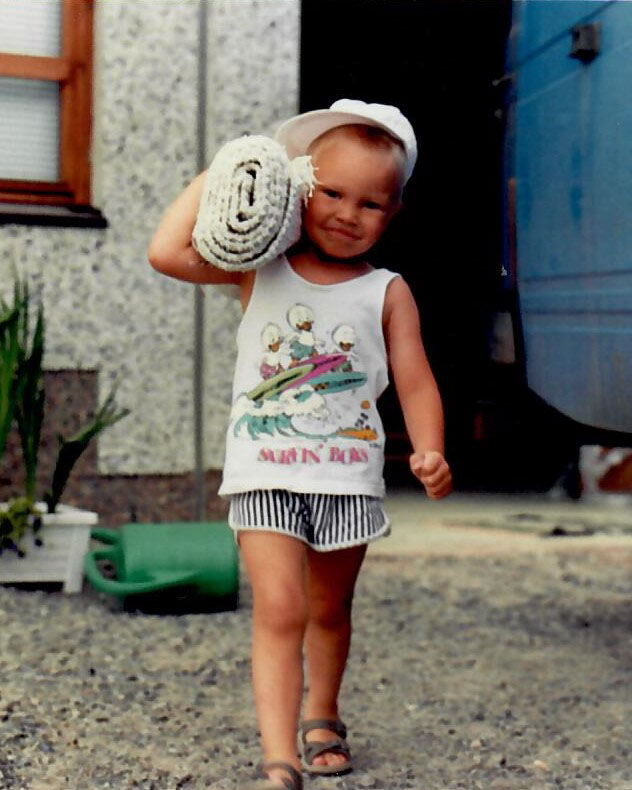Our family has been into rugs for over 60 years. Rugs used to be the main trade in Kauhava when Arvo Syvänen established his rug mill in the early sixties.
After years in consulting, Henri, a third-generation rug maker (pictured in the 80s), felt an irresistible pull towards the craft that had been woven into the fabric of his family’s history. With a vision to blend his family’s expertise in rug-making with contemporary design and a commitment to sustainability, he embarked on a journey to redefine the rugs for the modern era.
Thus, Woven Works was conceived. Our mission is to create collections that are sustainable, functional and playful. In our journey, we collaborate with designers who resonate with our ethos, ensuring that every piece is not only a work of art but also a symbol of our shared values.



